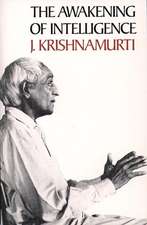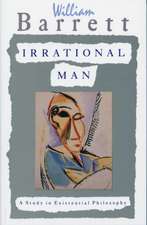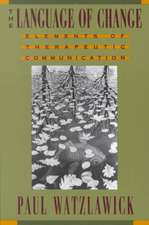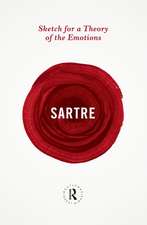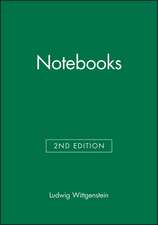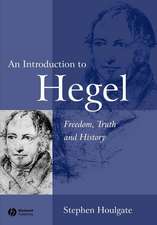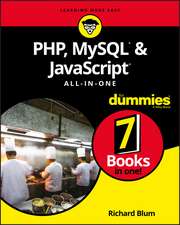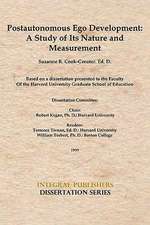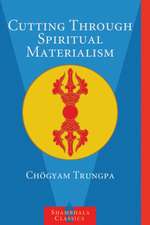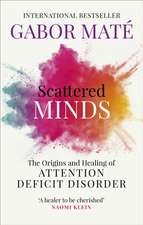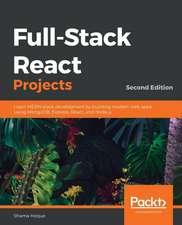Tractatus Logico-Philosophicus
Autor Ludwig Wittgensteinen Limba Engleză Paperback – 19 noi 2019
| Toate formatele și edițiile | Preț | Express |
|---|---|---|
| Paperback (16) | 38.64 lei 22-36 zile | |
| CreateSpace Independent Publishing Platform – | 38.64 lei 22-36 zile | |
| CREATESPACE – | 46.59 lei 22-36 zile | |
| OUP OXFORD – 11 mai 2023 | 51.94 lei 10-16 zile | +17.06 lei 6-12 zile |
| Dover Publications – 31 dec 1997 | 55.42 lei 22-36 zile | |
| Penguin Books – 26 ian 2022 | 62.31 lei 22-36 zile | +4.69 lei 6-12 zile |
| CREATESPACE – | 64.79 lei 22-36 zile | |
| Martino Fine Books – 25 mar 2015 | 100.46 lei 17-23 zile | +9.33 lei 6-12 zile |
| Taylor & Francis – 18 mai 2001 | 121.87 lei 22-36 zile | +6.68 lei 6-12 zile |
| Taylor & Francis – 2 iul 2013 | 159.85 lei 22-36 zile | +5.77 lei 6-12 zile |
| Taylor & Francis – 10 sep 1981 | 287.09 lei 22-36 zile | +16.39 lei 6-12 zile |
| BENEDICTION CLASSICS – 19 noi 2019 | 48.15 lei 43-57 zile | |
| Neeland Media – 18 iun 2019 | 51.80 lei 43-57 zile | |
| CHIZINE PUBN – 17 aug 2017 | 71.37 lei 17-23 zile | |
| Bottom of the Hill Publishing – 30 apr 2011 | 76.17 lei 38-44 zile | |
| COSIMO CLASSICS – 30 apr 2007 | 83.80 lei 43-57 zile | |
| Anthem Press – 10 mai 2021 | 306.04 lei 43-57 zile | +132.81 lei 6-12 zile |
| Hardback (6) | 78.13 lei 25-31 zile | |
| Penguin Books – 7 dec 2023 | 78.13 lei 25-31 zile | |
| BENEDICTION CLASSICS – 19 noi 2019 | 118.57 lei 43-57 zile | |
| Taylor & Francis – 18 mai 2001 | 626.30 lei 43-57 zile | |
| Anthem Press – 10 mai 2021 | 697.73 lei 43-57 zile | |
| Anthem Press – 10 mai 2021 | 698.44 lei 43-57 zile | |
| Taylor & Francis – 27 aug 2015 | 1269.38 lei 43-57 zile |
Preț: 48.15 lei
Nou
Puncte Express: 72
Preț estimativ în valută:
9.22€ • 10.01$ • 7.75£
9.22€ • 10.01$ • 7.75£
Carte tipărită la comandă
Livrare economică 21 aprilie-05 mai
Preluare comenzi: 021 569.72.76
Specificații
ISBN-13: 9781789430684
ISBN-10: 1789430682
Pagini: 88
Dimensiuni: 156 x 234 x 5 mm
Greutate: 0.15 kg
Editura: BENEDICTION CLASSICS
ISBN-10: 1789430682
Pagini: 88
Dimensiuni: 156 x 234 x 5 mm
Greutate: 0.15 kg
Editura: BENEDICTION CLASSICS
Descriere
Descriere de la o altă ediție sau format:
'what can be said at all can be said clearly; and of what one cannot talk, about that one must be silent'Wittgenstein's Tractatus Logico-Philosophicus, first published in German in 1921 and in English translation in 1922, is one of the most influential philosophical texts of the twentieth century. It played a fundamental role in the development of analytic philosophy, and its philosophical ideas and implications have been fiercely debated ever since. This new translation improves on the two main earlier translations, taking advantage of the scholarship over the last century that has deepened our understanding of both the Tractatus and Wittgenstein's philosophy more generally, scholarship that has also involved discussion of the difficulties in translating the original German text and the issues of interpretation that arise.Michael Beaney's translation is accompanied by two introductory essays, the first explaining the background to Wittgenstein's work, its main ideas and their subsequent development and influence, and some of the central debates, and the second providing an account of the history of the text and the two earlier translations. It is accompanied by detailed notes, explaining key points of translation and interpretation, a glossary, chronology, and other editorial material designed to help the reader understand the Tractatus and its place in the history of philosophy.
'what can be said at all can be said clearly; and of what one cannot talk, about that one must be silent'Wittgenstein's Tractatus Logico-Philosophicus, first published in German in 1921 and in English translation in 1922, is one of the most influential philosophical texts of the twentieth century. It played a fundamental role in the development of analytic philosophy, and its philosophical ideas and implications have been fiercely debated ever since. This new translation improves on the two main earlier translations, taking advantage of the scholarship over the last century that has deepened our understanding of both the Tractatus and Wittgenstein's philosophy more generally, scholarship that has also involved discussion of the difficulties in translating the original German text and the issues of interpretation that arise.Michael Beaney's translation is accompanied by two introductory essays, the first explaining the background to Wittgenstein's work, its main ideas and their subsequent development and influence, and some of the central debates, and the second providing an account of the history of the text and the two earlier translations. It is accompanied by detailed notes, explaining key points of translation and interpretation, a glossary, chronology, and other editorial material designed to help the reader understand the Tractatus and its place in the history of philosophy.
Recenzii
Paradox is a powerful source of philosophical intrigue. And these two new editions attest to the status of the Tractatus as perhaps the philosophical classic of the twentieth century, inspiring not only philosophers of both "analytic" and "continental" stripes, but also writers, logicians and film-makers.
Notă biografică
Ludwig Josef Johann Wittgenstein (26 April 1889 - 29 April 1951) was an Austrian-British philosopher who worked primarily in logic, the philosophy of mathematics, the philosophy of mind, and the philosophy of language.[12]
From 1929 to 1947, Wittgenstein taught at the University of Cambridge.[13] During his lifetime he published just one slim book (the 75-page Tractatus Logico-Philosophicus, 1921), one article ("Some Remarks on Logical Form", 1929), one book review and a children's dictionary.[14][15] His voluminous manuscripts were edited and published posthumously. Philosophical Investigations appeared as a book in 1953. His teacher, Bertrand Russell, described Wittgenstein as "perhaps the most perfect example I have ever known of genius as traditionally conceived; passionate, profound, intense, and dominating".[16]
Born in Vienna into one of Europe's richest families, he inherited a fortune from his father in 1913. He initially made some donations to artists and writers, and then, in a period of severe personal depression after the First World War, he gave away his entire fortune to his brothers and sisters.[17][18] Three of his four brothers committed suicide, which Wittgenstein had also contemplated. He left academia several times-serving as an officer on the front line during World War I, where he was decorated a number of times for his courage; teaching in schools in remote Austrian villages where he encountered controversy for hitting children when they made mistakes in mathematics; and working as a hospital porter during World War II in London, where he told patients not to take the drugs they were prescribed while largely managing to keep secret the fact that he was one of the world's most famous philosophers.
His philosophy is often divided into an early period, exemplified by the Tractatus, and a later period, articulated in the Philosophical Investigations.[19] "Early Wittgenstein" was concerned with the logical relationship between propositions and the world and he believed that by providing an account of the logic underlying this relationship, he had solved all philosophical problems. "Late Wittgenstein", however, rejected many of the assumptions of the Tractatus, arguing that the meaning of words is best understood as their use within a given language-game.[20]
A survey among American university and college teachers ranked the Investigations as the most important book of 20th-century philosophy, standing out as "the one crossover masterpiece in twentieth-century philosophy, appealing across diverse specializations and philosophical orientations".The Investigations also ranked 54th on a list of most influential twentieth-century works in cognitive science prepared by the University of Minnesota's Center for Cognitive Sciences.[21] However, in the words of his friend Georg Henrik von Wright, he believed that "his ideas were generally misunderstood and distorted even by those who professed to be his disciples. He doubted he would be better understood in the future. He once said he felt as though he "was writing for people who would think in a different way, breathe a different air of life, from that of present-day men
Cuprins
Foreword to the Routledge Great Minds Edition 1. Translators' Preface 2. Introduction by Bertrand Russell 3. Tractatus Logico-Philosophicus Preface 4. Translation Index

